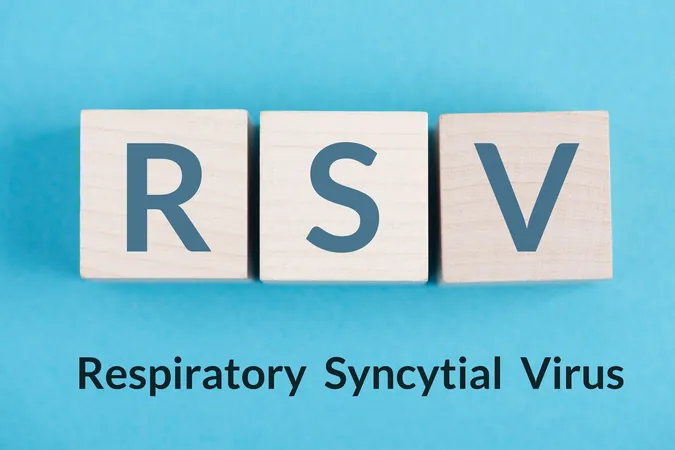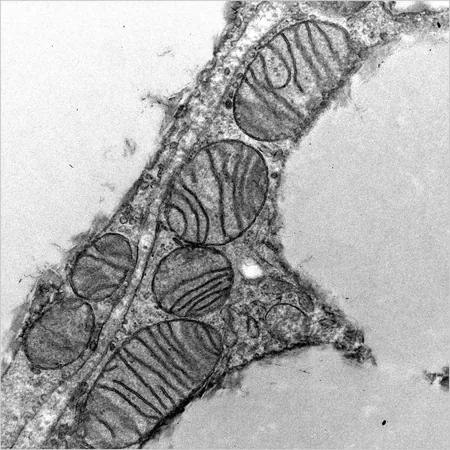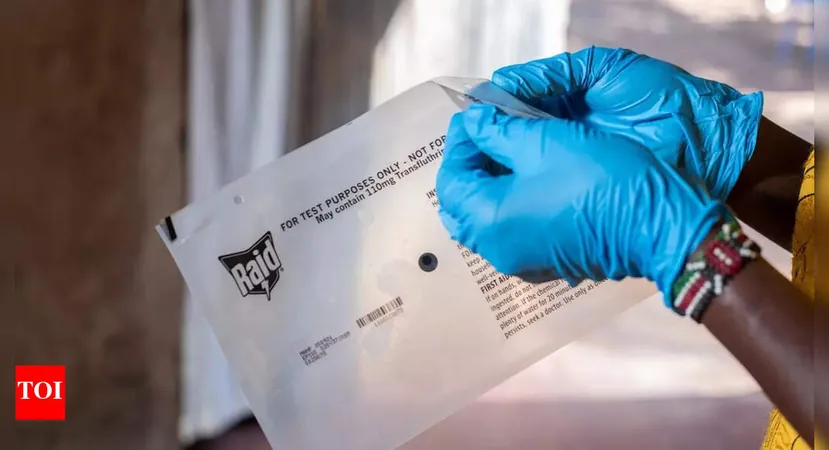
Breakthrough in Maternal RSV Vaccine: A Game Changer for Infant Protection!
2025-08-18
Author: John Tan
Revolutionary Insights into Maternal RSV Vaccination
In a groundbreaking study published in the Journal of Mother and Child, researchers revealed that maternal vaccines against respiratory syncytial virus (RSV) offer longer-lasting protection for infants compared to traditional monoclonal antibodies (mAbs). This is pivotal news as no RSV vaccine specifically for infants has yet made its debut.
RSV: A Serious Threat to Infants
RSV is notorious for causing severe upper respiratory infections that can escalate to dangerous lower respiratory tract infections, especially in vulnerable groups such as infants, the immunocompromised, and the elderly. Alarmingly, RSV is responsible for approximately 3 million hospitalizations and 120,000 deaths annually among children under five.
Current Defense Strategies for Infants
While elderly adults have access to multiple RSV vaccines, many infants remain unprotected. The recently approved nirsevimab provides a frontline defense against RSV for babies under eight months. However, its use is restricted to a narrow demographic, leaving many infants vulnerable.
Maternal Vaccination: The Key to Protecting Newborns
Research underscores the importance of maternal immunization, where women vaccinated during pregnancy can pass protective antibodies to their infants, safeguarding them during their crucial first six months of life. For maximum effect, it is recommended that mothers receive Pfizer's bivalent RSVpreF vaccine (Abrysvo) between 32 and 36 weeks of gestation.
A Shift in the Paradigm of Infant Protection
Despite decades of research failing to yield a dedicated RSV vaccine for infants, emerging maternal RSV vaccines are changing the landscape. Experts assert that these vaccines offer longer-lasting immunity than mAbs and suggest that mothers vaccinated during pregnancy may not need to rely on additional treatments for their newborns.
The Challenge of Awareness and Access
However, the uptake of maternal vaccination remains surprisingly low. As of January, just 38% of pregnant women in the US had been vaccinated against RSV, leaving a significant number of newborns unprotected. The disparity in vaccination rates can be attributed to factors such as insurance coverage, access to healthcare, and individual experiences with RSV.
Looking Ahead: The Future of RSV Vaccination Strategies
Researchers are calling for further studies to compare the safety and efficacy of maternal vaccines and mAbs comprehensively. This will help formulate a more effective immunization strategy for infants, ensuring that every child has the best possible defense against RSV.
Conclusion: A Beacon of Hope for Parents and Infants
As maternal vaccines show promise in providing robust protection against RSV, parents may soon have a powerful tool to shield their infants from this dangerous virus. Continuous research and outreach are essential to enhance awareness and encourage wider vaccination, ultimately safeguarding the health of our youngest and most vulnerable.




 Brasil (PT)
Brasil (PT)
 Canada (EN)
Canada (EN)
 Chile (ES)
Chile (ES)
 Česko (CS)
Česko (CS)
 대한민국 (KO)
대한민국 (KO)
 España (ES)
España (ES)
 France (FR)
France (FR)
 Hong Kong (EN)
Hong Kong (EN)
 Italia (IT)
Italia (IT)
 日本 (JA)
日本 (JA)
 Magyarország (HU)
Magyarország (HU)
 Norge (NO)
Norge (NO)
 Polska (PL)
Polska (PL)
 Schweiz (DE)
Schweiz (DE)
 Singapore (EN)
Singapore (EN)
 Sverige (SV)
Sverige (SV)
 Suomi (FI)
Suomi (FI)
 Türkiye (TR)
Türkiye (TR)
 الإمارات العربية المتحدة (AR)
الإمارات العربية المتحدة (AR)